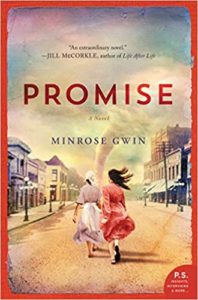 Another election is in the books, and those of us who worked hard to make it happen are grateful for a short breather before cranking up again for the November 3 election.
Another election is in the books, and those of us who worked hard to make it happen are grateful for a short breather before cranking up again for the November 3 election.
I worked as the officer at the Double Springs precinct, located at Upperman Middle School, on August 6. It was an Election Day both busy and bittersweet. I was assigned the same job for the March 3 election, but—as anyone in Putnam County who lived through that day recalls–things didn’t go as planned. It was tornado day, when 20 lives and more than 200 homes and businesses were lost. Several precincts, including Double Springs, couldn’t open. Displaced voters cast their ballots at the election office.
That tragic day was heavy on my heart August 6, not just because another election had rolled around, but also because of a novel I recently read and can’t shake from my mind.
“Promise” by Minrose Gwin (HarperCollins, 2018) is set in Tupelo, Mississippi in 1936 and centers around a real disaster that happened there. At 9:00 p.m. on April 5, a massive funnel cloud roared like a runaway train into Tupelo. The F-5 tornado, with winds estimated at 300 miles per hour, leveled 48 city blocks (about half the town) and killed more than 200 people. White people, that is. Though black citizens made up one-third of the town’s population, no one bothered to count the number of casualties among people of color.
With the hospital too damaged to use, the injured were taken to boxcars—segregated, of course–where make-shift medical facilities were hurriedly set up. Downed electric lines had plunged the town into darkness. Chaos and confusion reigned.
The story is told from the point of view of two different women. The first is Dovey Grand’homme, an elderly African-American woman who has worked for decades as a laundress for several of Tupelo’s prominent white families. Dovey’s husband is a janitor in a cotton mill. Their only child is deceased. Teenage granddaughter Dreama has recently given birth to a baby boy, the product of a horrific rape committed by “Son” McNabb, one of Dovey’s white customers. The baby’s name is Promise, and he’s been blown away by the storm.
The other side of the story is told through the eyes of fifteen-year-old Jo McNabb, younger sister of “Son” and primary caregiver for her own baby brother, Tommy. Their father is distracted. Their mom is an emotional wreck. The tornado does not spare the McNabb home. Two family members lay injured, and perhaps dying, in the wreckage. Two others, including little Tommy, are missing.
That’s all I’m going to reveal about the plot.
“Promise” is riveting. It’s a can’t-put-it-down page turner. And it’s horrifying, not just because of babies flying through the air and bloated livestock floating in farm ponds and mangled human bodies dangling from tree limbs and flattened houses and businesses and churches and schools. It’s also horrifying because we quickly come to realize that the dead and injured members of the African-American community don’t matter much. Not to the rescuers. Not to the white citizens whose homes still stand. Not to the doctors and nurses. Not to the people compiling casualty numbers. Only the “CCC boys,” sent from up north to assist the victims, treat Tupelo’s black citizens with respect and kindness.
My side of Cookeville was physically unaffected by our March 3 tornado. After reading “Promise,” I feel I know at least a little more about the horror our neighbors west of town experienced. And “Promise” drove home another uncomfortable truth. I fear that, like too many of the white folks in 1936 Tupelo, Mississippi, some Americans still don’t believe that black lives matter.
(August 15, 2020)